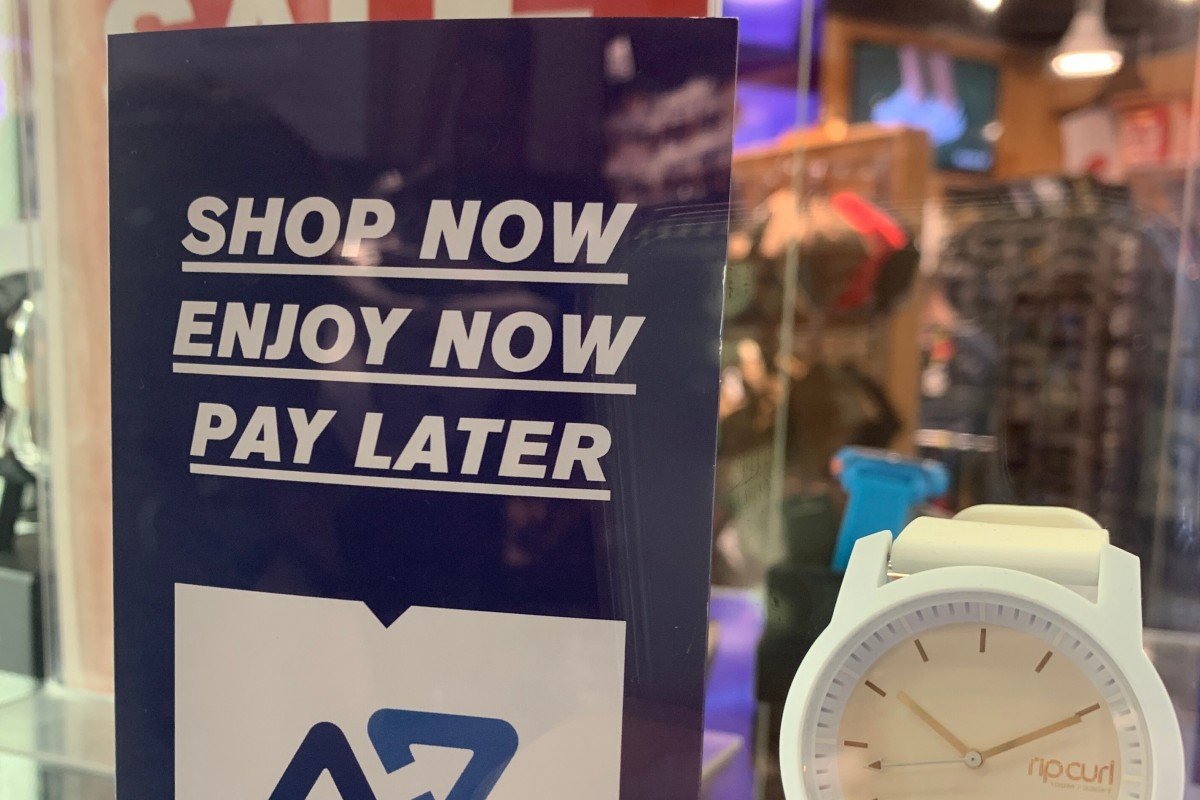You see it, you view it, you want it, you buy it.
But can you really afford it?
Want a S$600 Secretlab chair but can’t pay for it in full? How about a second-hand S$2,500 Cartier watch sold at Reebonz?
Well, with buy now pay later (BNPL) payment services, you can now pay for those tempting “wants” via installments.
Other purchases that can be made in installments using BNPL – paying for your wedding banquet deposit, as well as that diamond proposal ring, and those omnidesks.
In fact, about two in five Singapore residents (or 1.1 million Singaporeans) have used some type of BNPL solution as of October last year, a consumer survey by Finder showed.
BNPL services are set to grow further. Juniper Research predicts the BNPL industry to expand 274 per cent from 2021 to 2026 to reach S$995 billion.
BNPL purchases would take up 24 per cent of global e-commerce transactions (for physical goods in value) and account for at least 1.5 billion purchases in 2026, compared to 340 million and just nine per cent in 2021, it said.

What is BNPL?
The rise in BNPL services came in the wake of the COVID-19 pandemic, appealing to cash-strapped consumers with its flexible payment plans.
A typical payment service would break up a purchase into three interest-free monthly payments, and the providers usually require a credit or debit card number to deduct payments from when due. Payments are often touted as interest-free, but some observers note that many do not know about the late payment fees.
Popular BNPL service providers in Singapore include Hoolah, Atome, Rely, Pace, Grab PayLater, and FavePay Later.
Singapore’s BNPL market is forecast to grow 14.8 per cent by 2028, as it allows online customers to purchase products instantly without having them pay full upfront costs. Most BNPL services are offered at zero per cent interest.

But observers are concerned that with many micro providers coming on board, users may rack up considerable debt if they leap from one provider to another, and result in multiple accounts with bad debts. Many BNPL firms rely on their internal metrics to check on the credit reliability of the users, and do not conduct credit checks with other industry providers.
The ‘instant lifestyle’
The obsession with material things does not just stop in sunny Singapore. It’s happening worldwide – especially to the younger generation, like millennials and the Gen Zs.
The younger generation are more eager to experience “instant gratification” instead of doing long-term financial planning, according to Professor Oliver Rui, a professor of finance at the China Europe International Business School.
Millenials are those aged between 26 to 41 while Gen Zs are those between 6 and 24 years old.

In “material world” China, for example, the country’s millennials are using BNPL options to satisfy their hunger for the latest consumer gadgets and other services, and that’s causing regulators to worry.
During last year’s Singles’ Day shopping festival, sales for the world’s largest online shopping event hit a record US$18 billion, with one in three transactions made using the Huabei deferred payment option.
Other credit services offered by Alibaba and JD.com are allowing the young to spend borrowed money. With new credit lines handed out to youths who may not have a strong grasp to handling money still, many have ended up broke and needed their parents to bail them out.
“This is a cause for worry especially among those millennials who lack financial discipline to curb unnecessary and excessive spending,” said Vasu Menon, executive director of investment strategy, OCBC Bank.
“(BNPL) offers shoppers the option to pay for their purchases in interest-free instalments over time…However, those who make such purchases, especially expensive items, may fail to realise that while instalments may reduce the cashflow burden by allowing payments to be spread over time, (it) can affect your ability to save and may set you back from achieving more important long-term financial goals like buying a home,” he said.

Suraya Zainudin, founder of RinggitOhRinggit.com, a personal finance blog, is adamant that BNPL arrangements are more harmful to consumers than anything.
She said BNPL providers are creating a debt trap for consumers who are overextending themselves without fully understanding these products’ implications on their future financial health and credit standing.
Other other issues personal finance watchdogs are also raising red flags about: rules on credit limit and surcharge, as there’s been instances where merchants would price their products 10 per cent to 25 per cent higher when BNPL arrangements were offered.
BNPL’s zero interest service is another key area of concern, observers warned, calling out the risk of hidden late payment charges that could introduce bad debt, and demanded for greater transparency on fees.
BNPL providers ask users to ‘pay on time’
In a response to queries from Vulcan Post, a Grab spokesperson said its PayLater service does not have any hidden costs or interest fees tied to using the service. “All potential costs, like account reactivation fees, are all clearly laid in our communications materials to consumers,” she said.
It only offers Grab PayLater to consumers who have the ability to pay. “To identify who, we have built a risk model based on various factors such as their spending and paying behaviour on the Grab app. Based on these spending and paying behaviour, we also set personalised spend limits for different consumers.”
Thus far, an overwhelming majority of consumers have paid on time. “If users do miss a payment, their PayLater will be suspended to prevent a debt spiral (unlike a credit card). Their account can be reactivated when they make payment as well as pay a one-time S$10 reactivation fee,” the spokesperson said.
On Fave’s website, it states that customers’ eligibility for FavePay Later are assessed based on several criteria including validity of credit or debit card linked to the user’s Fave account and the user’s transaction history on the e-commerce platform. Customers would incur a late payment charge of 1.5 per cent of the final price if they failed to fulfill an installment before the due date.

Atome’s general manager for Singapore and Malaysia Trasy Lou-Walsh said that the company pays the merchants in full (excluding transaction fees) when users make purchases, and essentially, Atome is the one taking on the risk if a customer doesn’t pay back.
When a customer is late with payment, there’s an immediate account suspension until the payment is settled or a fixed fee of S$20 is paid to reactivate the account. About 70 per cent of its users are between 26 and 45 years old.
BNPL providers are incentivised to have customers pay on time, Trasy said, and when customers are late in payments, it hurts the business.
“Our business model works by charging merchants a transaction fee for every purchase. For customers, it costs nothing extra: zero interest, zero annual fees, zero service fee…the business hinges on the ability to assess that credit risk in real-time, because if you don’t get it right, your business will not be sustainable or grow healthily over the long term.”
Trasy said that the firm did an extensive six month research on consumer habits before Atome was launched, and the research revealed that people wanted a financial tool to better manage their spending and shop smarter, while keeping to a budget. This paints a different picture to what the experts are saying.
“Up to half our customers decide to register their account with a debit card, not that they can’t qualify for a credit card, but because they choose not to use one. This is a great insight about how millennials are very conscious about how they spend,” she said.
Atome said that its repayment terms are transparent, and in most cases, automatic when a user links a credit or debit card to their account.

“Users can also easily track their payment schedules, when and how much they have to pay on the mobile app. We send multiple reminders via SMS, email and mobile app notifications to remind users when payment is due,” Trasy said.
Grab also noted that it’s important for all users to have a good understanding of any financial product (not just BNPL) before using it.
“They should be wary of hidden information and costs and have considered all factors before committing to any service,” the company’s spokesperson said.
Governments mull tighter regulations
Singapore’s central bank is looking at regulating the space, especially considering the rising debt among younger generations.
It said that it’s “reviewing the appropriate regulatory approach” for the BNPL solutions that are being offered, and the steps taken to review these solutions will be “risk-proportionate and evenly applied across providers”.
It noted that such schemes can still result in overstretched finances and cause potential financial distress when consumers are not careful and overspend.
The Monetary Authority of Singapore is not alone in this. The UK’s Financial Conduct Authority (FCA) has declared that the BNPL solutions offered will be covered by stricter rules as billions of pounds were being lent in unregulated transactions.
The Australian Securities and Investments Commission (ASIC) had also raised concerns over BNPL solutions. That’s after one-in-five consumers were reported to have missed payments and were facing financial distress. ASIC said that consumers were making do without essentials or have resorted to taking out additional loans to cope with the BNPL payments.

Industry watchers agree that regulation is needed to both protect customers and create a healthy and sustainable BNPL industry where operators are here for the long-run.
The introduction of rules and requirements would help to filter out the less reliable players.
In the larger scheme of things, regulating BNPL schemes will help to manage the finances of the younger generation for the long haul, Vasu said.
He cited the OCBC Financial Wellness Index survey conducted last year that showed that more millennials are only paying the minimum sum for their credit cards, compared to Gen X and baby boomers, reflecting a worrying trend on this generation’s consumer habits.
“There is a risk that BNPL schemes may encourage overspending and become a debt trap that could set back millennials significantly from achieving their life goals, paying for your children’s education, and building a nest-egg for retirement,” Vasu said.
E-commerce is a key content pillar for Vulcan Post. You can follow our coverage on e-commerce here.
From 1 July 2021, Vulcan Post’s premium articles will be hidden behind a paywall. Subscribers will be able to enjoy exclusive articles with a deeper level of coverage and insight on verticals that include government technology, electric vehicles, cryptocurrency and e-commerce. You can check out our premium articles here and subscribe to us here.
Featured Image Credit: South China Morning Post








